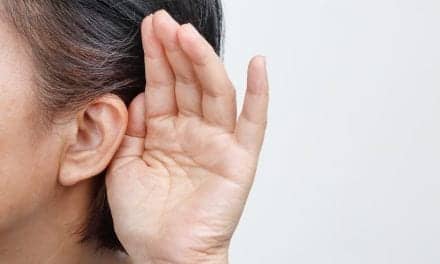In the September 2000 issue of The Hearing Review, Mark Ross, PhD, described how research and technology over the last 20 years has blossomed in terms of audiological testing (pure-tone, tympanograms, otoacoustic emissions, etc.) and hearing instrument technology (linear to programmable to digital).1 Despite this progress, Ross points out, little research or application of knowledge has transcended into the widespread use of aural rehabilitation programs or coping skills classes for the consumer. While impressive strides in technology have occurred, critical information has not filtered down to the consumer in the form of hand-outs, workshops, classes and seminars to help consumers get more out of their hearing instruments.
As a college faculty member teaching in a communications department, I encounter growing numbers of students who suffer from hearing loss and need more assistance than they receive from amplification alone. As a consultant in private practice, consumers contact me wanting to know if there is something else they can do for their hearing loss besides getting a hearing instrument. Dispensing professionals emphasize the positives of hearing instruments and sometimes unintentionally create unrealistic expectations, which leads to higher return rates for the aids. This problem has frustrated hearing care professionals, consumers and industry manufacturers alike. Ross mentions “that we [should] stress that hearing instruments are just one component” of the rehabilitation process.
The encouraging news is that aural rehab classes need not be overly-intensive or costly; rather, these seminars can be simple and user-friendly.
Curriculum of a Coping Skills Seminar
Ross and many others have suggested that a hearing instrument fitting procedure should include a group hearing aid orientation program. For years, the Steve Hodges Foundation for the Hearing-Impaired (SHF) has produced materials designed to foster coping skills for late-deafened adults in which learning more about their hearing loss and how to maximize benefits from hearing instruments is emphasized.
Communication Connection uses much of this material as it collaborates with an audiology practice to facilitate aural rehab seminars. These coping skills classes are designed to go beyond what patients learn from their medical doctors or hearing care professionals. The sessions cover the following topics: getting the most from your hearing instrument; increasing the longevity of your hearing instrument; assistive devices you can use with and/or without your hearing instrument; communication techniques on repairing misunderstandings; and resource information on national, local and on-line support groups and publications. The program also offers a communication assessment to individuals who enroll in the course.
Communication Assessment
A communication assessment takes place when a communication specialist visits the home, workplace or school setting and examines the physical parameters for several factors: acoustics, lighting, ambient noise, position of furniture, window treatment, assistive technology (e.g., hearing aid compatible phones, TTYs, voice mail, e-mail, phone flashers, strobe smoke detectors, amplified ringers), types of cubicles/work areas, number of personnel in a specified space, etc. Upon completion of communication assessments, recommendations are divided into three categories: no cost changes, low-cost modifications and more expensive/extensive renovations.2
No cost changes: Examples of no cost changes include: 1) placing a person’s desk in a position where the desk faces the door to enable the person with a hearing loss to see people walk by, or 2) arranging furniture in a room in a more circular fashion to enhance speech-reading abilities.
Low cost modifications: Examples of low-cost modifications include: 1) exchanging a conventional telephone with a VCO phone or an amplified phone that utilizes telecoils on hearing instruments, or 2) adding a light flasher to a cubicle workstation to indicate the phone is ringing, or 3) adding an FM system for a child at school.
More Expensive Renovations: Examples of renovations include: 1) integrating knee walls [as opposed to full floor-to-ceiling walls] that allow visibility from one room to another or 2) moving a sink or workspace that faces a kitchen window to an island where a person can follow conversation going on in the area by lipreading.
Coping Skills Seminars + Additional Resources = Client Retention
Another critical aspect of the coping skills seminar is the inclusion of additional ongoing support. People who suffer from hearing loss often feel alone with their hearing problems. Being involved with local Self Help for Hard of Hearing People (SHHH) and/or Assn. of Late-Deafened Adults (ALDA) groups is a way of enabling clients to meet other people who have similar problems. At these support meetings, hearing-impaired people can share a lot of information.
By meeting on a monthly basis with others, these support groups create positive benefits for hearing care professionals. That is, dispensing professionals are more likely to retain clients who receive continuous hearing education, and these clients are more likely to come back to them for hearing instrument check-ups and yearly hearing evaluations, and to purchase newer generations of hearing instrument technology.
Word-of-mouth referrals continue to be the most effective marketing strategies for hearing care professionals, and such referrals flourish in these ongoing support group settings. In personal communication with several hearing care professionals, they have reinforced the notion that patients who take an active role with their hearing loss by attending coping skills classes tend to make better, more satisfied customers because they have a greater and more accurate understanding of the benefits of amplification, as well as the limitations of their devices.
Hearing Education Seminars
Past experience organizing aural rehab seminars indicate that holding class size to approximately 8-12 people creates an intimate setting in which people disclose more honestly what their challenges have been, while others who have experienced the same situations offer solutions or alternatives that have worked well for them.
Having a background in hearing care and aural rehabilitation is needed to conduct the aural rehab seminars. But, even more so, developing the talent to lead group discussions promotes an atmosphere of sharing that is integral to the success of coping skills seminars. Additionally, have an ALD system set up so that those hearing instrument users who have telecoil can experience ALDs and other auxiliary equipment being used in conjunction with their hearing instruments.
Encouraging Aural Rehab Seminar Attendance
You may be thinking, “A coping skills class sounds good, but how do I get my clients to attend?” To encourage people to attend seminars, recommendations include offering a “free admission” to the course with the purchase of a new hearing instrument (this also reduces the likelihood of the hearing instrument being returned during the trial period). Consider offering coping skills seminars at a moderate cost to established clients, and make it practical for both husband and wife to attend the seminar together. There are others besides the person with the hearing loss in the household who may have to live every day with hearing loss, and they should likewise be encouraged to attend when applicable.
The SHF has sponsored three national coping skills retreats. Headquartered in Austin, TX, the SHF brings in national presenters who have personal and professional ties to hearing loss and over a period of several days caters to the family members so that they, too, have an opportunity to express frustrations, voice concerns and ask questions in a comfortable environment. On evaluations conducted at the conclusion of the retreats, family members often write that they gained a better understanding of their significant other’s hearing loss.
Continued Contact
Lastly, it is helpful to have an email posting or newsletter distributed a few weeks after each seminar to provide reiteration of critical information, updated information and a boost of motivation for the clients. It is always helpful to include a bibliography of further readings that people can check out on their own from the local public library or purchase from the bookstore. Leave the impression that you want to build a relationship with them that extends beyond the purchase of the hearing instrument, and that you want them to learn a full range of methods for communicating and dealing with their present hearing loss.
| This article was submitted by Anne McIntosh, PhD, who is affiliated with Communication Connection, Davidson, NC, and is a faculty member in the Department of Speech Communication at Central Piedmont College. Correspondence can be addressed to Anne McIntosh, PhD, Communication Connection, P.O. Box 1961, Davidson, NC 28036-1961; email: [email protected]. |
References
1. Ross M: When a hearing aid is not enough. Hearing Review 2000; 7 (9): 26-30.
2. McIntosh A: In search of a communication-friendly home. Hearing Health 2000; 17 (2): 42-46.




